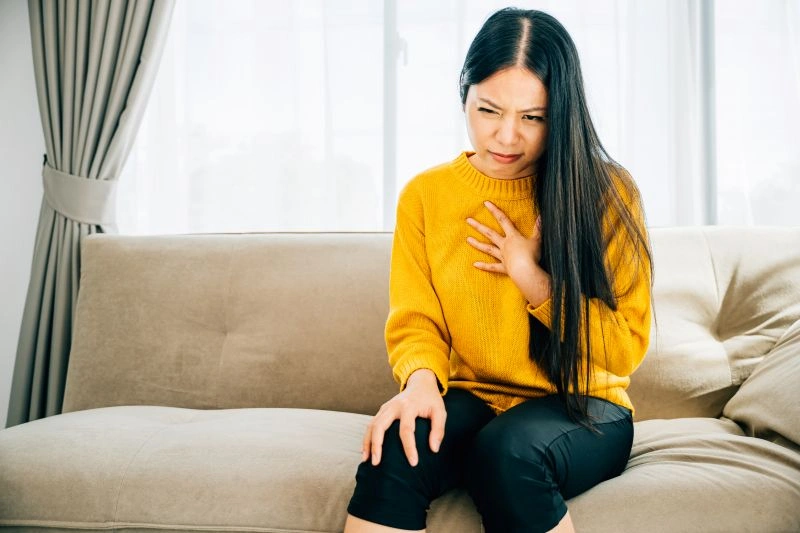Mental health crises don’t follow a schedule. They don’t wait for business hours or respect appointment calendars. When someone experiences a panic attack at midnight, when depression becomes overwhelming on a weekend, or when anxiety spirals out of control on a holiday—these moments demand immediate attention.
Yet for years, people facing mental health emergencies had limited options: wait days or weeks for a therapist appointment, call a crisis hotline, or head to an emergency room where psychiatric care often takes a backseat to physical injuries.
The gap between needing help and receiving it has widened considerably in recent years. The global pandemic brought unprecedented levels of anxiety, depression, and trauma, while social isolation disconnected people from their support networks.
At the same time, conversations about mental health have become more open, encouraging more people to seek help than ever before. Enter mental health urgent care—a bridge between crisis hotlines and emergency rooms, designed specifically to provide immediate psychiatric support when it’s needed most.

What Is Mental Health Urgent Care?
Mental health urgent care represents a specialized approach to addressing psychiatric needs that require immediate attention but don’t necessarily warrant a trip to the emergency room. These facilities operate on a walk-in basis, providing same-day care for individuals experiencing acute mental health symptoms that need prompt professional intervention.
Definition and Key Services
An urgent care for mental health functions similarly to traditional urgent care centers for physical ailments, but focuses exclusively on psychiatric and psychological needs. These facilities are staffed by mental health professionals, including psychiatrists, psychiatric nurse practitioners, clinical social workers, and licensed therapists who can provide comprehensive assessments and immediate treatment.
The services typically include crisis intervention, psychiatric evaluations, medication prescribing and adjustments, brief counseling sessions, safety planning, and connections to ongoing care. Unlike emergency rooms, these centers are designed specifically for mental health concerns, creating an environment that feels less clinical and more therapeutic.
Types of Mental Health Urgent Care Clinics
Mental health urgent care clinic models vary based on community needs and resources. Some operate as standalone facilities dedicated solely to psychiatric emergencies. Others function as specialized units within larger healthcare systems. Mobile urgent care for mental health units serves communities with limited access to mental health resources, bringing services directly to underserved areas.
Community-based clinics often partner with local hospitals and mental health organizations to create comprehensive care networks. Academic medical centers may run urgent care mental health programs that combine immediate care with research and training. Regardless of the model, all share the common goal of providing accessible, immediate psychiatric support.
Why Mental Health Urgent Care Is Essential for Immediate Support
The importance of these specialized facilities extends far beyond convenience. They address fundamental problems in mental health care delivery that have persisted for decades.
Addressing Mental Health Crises Effectively
When someone experiences a mental health crisis, the response time can determine the outcome. Mental health urgent care facilities provide trained professionals who can quickly assess the severity of a situation, implement appropriate interventions, and create safety plans. This immediate response can prevent self-harm, stabilize acute symptoms, and help individuals regain a sense of control.
These centers understand that mental health emergencies look different from physical ones. A person in crisis might not have obvious external symptoms, but their internal experience is just as urgent as someone with chest pain. The staff at mental health urgent care clinic locations are trained to recognize subtle signs of distress and respond with appropriate interventions.
Reducing Wait Times and Improving Access to Care
Traditional mental health care often involves waiting weeks or even months for an initial appointment. During this waiting period, symptoms can worsen, crises can develop, and hope can fade. Urgent care mental health facilities eliminate this dangerous gap by offering same-day access to professional support.
The walk-in model removes barriers that prevent people from getting help. No referral is needed. No lengthy intake process delays care. Individuals can receive assessment and treatment within hours rather than weeks, potentially preventing minor issues from becoming major crises.
Confidential and Non-Stigmatizing Care
The environment at a mental health urgent care center is designed to reduce the stigma often associated with seeking psychiatric help. Unlike emergency rooms, where mental health patients might feel out of place among physical injuries, these specialized facilities create a welcoming atmosphere focused entirely on emotional and psychological well-being.
Privacy and confidentiality are prioritized throughout the care process. The staff understands the courage it takes to seek help and approaches each person with respect and dignity. This supportive environment encourages individuals to be honest about their symptoms and concerns, leading to more accurate assessments and effective treatment plans.

Services Provided by Mental Health Urgent Care Centers
The comprehensive nature of services offered at these facilities makes them a crucial component of the mental health care continuum.
Immediate Assessment and Stabilization
When someone arrives at an urgent care for mental health facility, the priority is conducting a thorough psychiatric evaluation. Clinicians assess current symptoms, risk factors, medical history, and immediate needs. This assessment determines the appropriate level of care and intervention strategies.
Stabilization techniques might include:
- Creating a safe, calm environment where individuals can process their emotions
- Teaching grounding techniques to manage overwhelming feelings
- Developing safety plans for managing symptoms after leaving the facility
- Connecting individuals with support resources and emergency contacts
Medication Management
For many people experiencing acute mental health symptoms, medication adjustments or new prescriptions can provide significant relief. Psychiatrists at these facilities can prescribe medications, adjust current prescriptions that aren’t working effectively, or address medication side effects that are causing problems.
This immediate access to psychiatric prescribing can be lifesaving for individuals whose medications have stopped working or who are experiencing their first psychiatric crisis. Rather than waiting weeks for a psychiatry appointment while symptoms worsen, individuals receive expert medication management when they need it most.
Short-Term Therapy and Counseling
While mental health urgent care isn’t meant to replace ongoing therapy, these facilities provide brief therapeutic interventions that can make a significant difference during a crisis. Licensed therapists offer evidence-based techniques for managing acute symptoms, processing traumatic events, and developing coping strategies.
These short-term sessions focus on immediate concerns and skill-building. Therapists might teach breathing exercises for anxiety, cognitive restructuring techniques for intrusive thoughts, or communication strategies for relationship conflicts. Even a single session can provide individuals with tools they can use to manage their symptoms until they establish ongoing care.
Referral to Ongoing Care
A critical component of urgent care mental health services is connecting individuals with appropriate follow-up care. Staff members help schedule appointments with therapists, psychiatrists, or other mental health providers. They can facilitate warm handoffs to community mental health centers, ensuring continuity of care.
For individuals who lack insurance or resources, case managers can help identify affordable treatment options, sliding-scale clinics, and community support programs. This follow-up planning ensures that the crisis intervention at the urgent care center is just the beginning of a longer healing process.
How Mental Health Urgent Care Clinics Improve Overall Mental Health Care
The impact of these facilities extends beyond individual patients to improve the entire mental health care system.
Filling Gaps in Traditional Mental Health Systems
Traditional outpatient mental health care operates on an appointment-based model that doesn’t accommodate emergencies well. Meanwhile, inpatient psychiatric hospitals are designed for severe, long-term stabilization.
Mental health urgent care clinic facilities fill the gap between these extremes, providing a middle ground for people who need more than an appointment can offer but less than hospitalization requires.
This intermediate level of care catches individuals before they reach crisis points that require expensive, intensive interventions. By addressing problems early, these facilities help people avoid psychiatric hospitalizations and maintain their daily functioning.

Reducing Emergency Room Overcrowding
Emergency rooms have become default crisis centers for mental health emergencies, but they’re poorly equipped for this role. ER staff are trained for physical trauma, and the chaotic environment can worsen psychiatric symptoms. Patients with mental health concerns often wait hours for assessment, taking resources away from medical emergencies.
Benefits of diverting mental health cases to specialized urgent care include:
- People with psychiatric needs receive specialized care in a therapeutic environment designed for mental health treatment
- Emergency rooms can focus resources and attention on medical emergencies and physical trauma
- Healthcare systems reduce costs associated with lengthy ER visits for mental health concerns
- Wait times decrease for all patients in emergency departments
Lowering Barriers to Accessing Care
Several obstacles prevent people from seeking mental health treatment: cost concerns, lack of insurance, transportation difficulties, work schedule conflicts, and fear of judgment. Mental health urgent care addresses many of these barriers through extended hours, walk-in availability, and a focus on accessibility.
Many facilities offer:
- Evening and weekend hours for people who work during traditional appointment times
- Sliding-scale fees based on income for uninsured individuals
- Locations in accessible areas with public transportation
- Multilingual staff to serve diverse communities
- Child-friendly spaces for parents who need to bring their children with them
By removing these obstacles, urgent care for mental health services reaches populations who might otherwise go without treatment until situations become dire.
The Path Forward
Mental health urgent care has proven essential for providing immediate, accessible psychiatric support during a time when mental health needs have never been greater. By providing same-day assessment, crisis intervention, medication management, and connections to ongoing treatment, these centers prevent mental health conditions from escalating into emergencies while offering dignity and respect to individuals during vulnerable moments.
As awareness grows about the importance of mental health, the demand for immediate support services will continue increasing. Mental health urgent care represents a fundamental reimagining of how we approach psychiatric crises—with urgency, compassion, and expertise.
For anyone experiencing a mental health crisis, knowing that professional help is available without an appointment, without judgment, and without delay can make all the difference between a situation that worsens and one that improves.